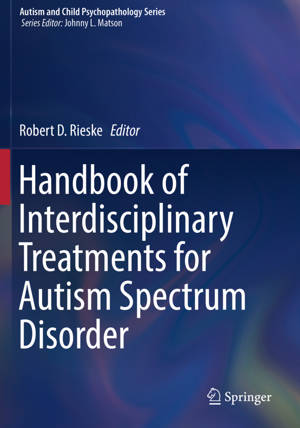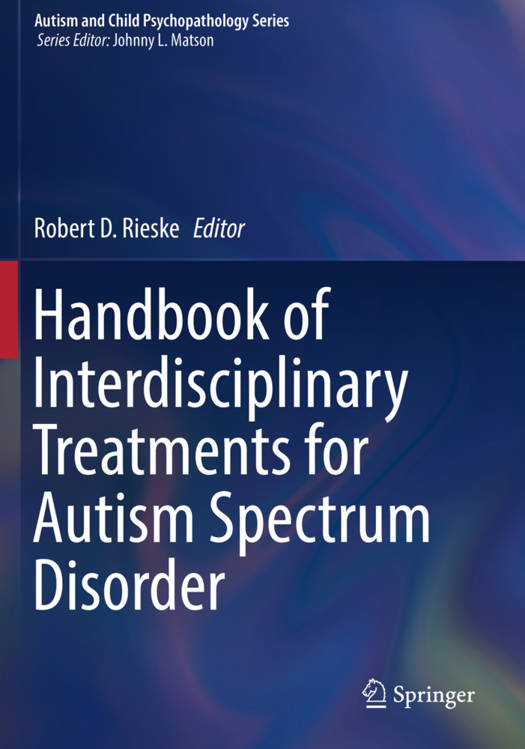
- Retrait gratuit dans votre magasin Club
- 7.000.000 titres dans notre catalogue
- Payer en toute sécurité
- Toujours un magasin près de chez vous
- Retrait gratuit dans votre magasin Club
- 7.000.000 titres dans notre catalogue
- Payer en toute sécurité
- Toujours un magasin près de chez vous
Handbook of Interdisciplinary Treatments for Autism Spectrum Disorder
Description
This handbook examines the medical and therapeutic needs of individuals with autism spectrum disorder (ASD) and the effectiveness of treatments that are delivered through interdisciplinary teams. It analyzes the impact of interdisciplinary teams on assessment, diagnosis, treatment planning, and implementation and explores how evidence-based treatments can be developed and implemented. Chapters describe the wide-ranging effects of ASD and the challenges individuals and their family members face when seeking treatment. In addition, chapters provide an overview of the comorbidities and related disorders that often accompany ASD, including neurodevelopmental disorders, medical and behavioral problems, and psychopathology. The handbook also discusses the critical importance of caregivers in the treatment team as experts in their child's strengths, problem areas, and functioning.
Topics featured in this handbook include:
- Legal considerations in interdisciplinary treatments.
- Ethical considerations in the development and implementation of interdisciplinary teams.
- Evidence-based interdisciplinary treatment and evaluation considerations.
- The role of primary care physicians and subspecialty pediatricians within interdisciplinary teams.
- The impact of school psychologists related to assessment and intervention development.
- Vocational interventions that promote independence in individuals with ASD.
The Handbook of Interdisciplinary Treatments for Autism Spectrum Disorder is a must-have resource for researchers, clinicians and professionals, and graduate students across such interrelated disciplines as clinical child, school, and developmental psychology, child and adolescent psychiatry, social work, rehabilitation medicine/therapy, pediatrics, and special education.
Spécifications
Parties prenantes
- Editeur:
Contenu
- Nombre de pages :
- 479
- Langue:
- Anglais
- Collection :
Caractéristiques
- EAN:
- 9783030130299
- Date de parution :
- 14-08-20
- Format:
- Livre broché
- Format numérique:
- Trade paperback (VS)
- Dimensions :
- 178 mm x 254 mm
- Poids :
- 852 g






